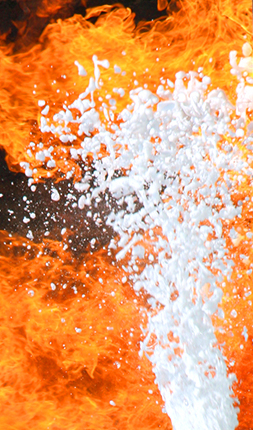Locals form solid front on foam
 New South Wales residents have launched a class action against the Defence Department over allegations of exposure to toxic fire-fighting foam.
New South Wales residents have launched a class action against the Defence Department over allegations of exposure to toxic fire-fighting foam.
More than 400 people from Salt Ash, Williamtown and Fullerton Cove say their groundwater has been contaminated with the toxins PFOS and PFOA, which were used in fire-fighting foam at the RAAF’s Williamtown base until about five years ago.
The contamination is preventing residents from drinking their bore water, eating home-grown vegetables or eggs from farmyard chickens.
Locals say their property values have declined and many suffering mental anguish.
“Banks are withholding loans in the area, valuers are not coming to site when they find out it's in the exclusion zone, those people are locked into no-man's land ... They have no future because they have no equity in their property,” one local told ABC reporters.
Lawyers have filed proceedings on instruction from unhappy residents, who say the Department's response to a letter of demand sent several weeks ago was inadequate.
Their letter called for remediation and an out of court settlement.
They reportedly received a one-and-a-half page response from Defence, which it would not respond to demands being made, as they would require a whole-of-government response.
Lawyers say class action are also being formed in areas around the 17 other RAAF sites around Australia that are similarly affected.
Vince Morabito, a professor of law at Monash University, said it could be the first such class action against Defence, and could set new precedents in the rarely litigated area of environmental law.
“A class action is a procedural device that allows claims by numerous people, it makes those claims financially rational to be litigated,” Professor Morabito told reporters.
“At the end of the day the perception or the assessment by the plaintiff lawyers on how strong the substantive claims are is likely to become the most important factor.”








 Print
Print